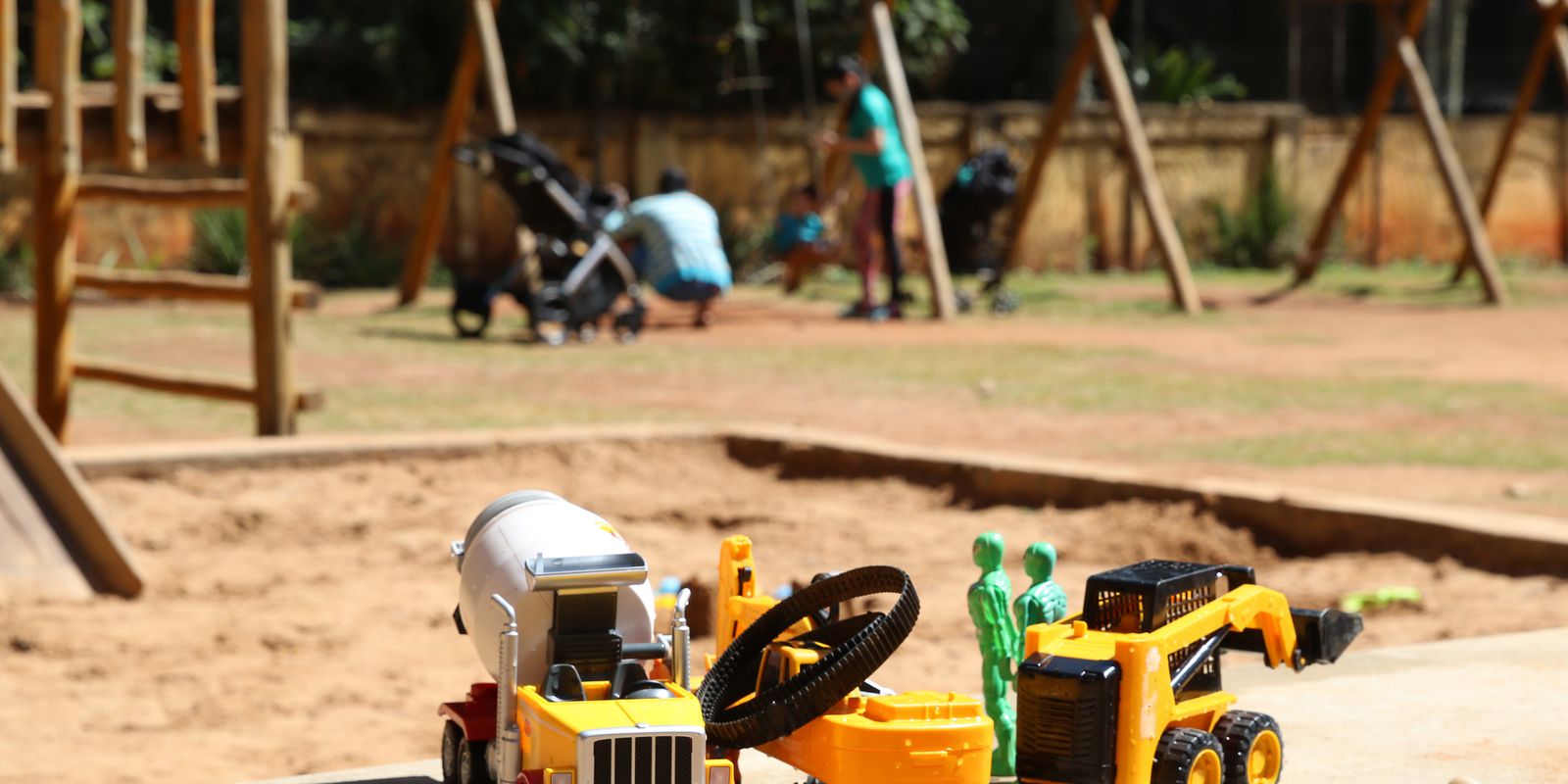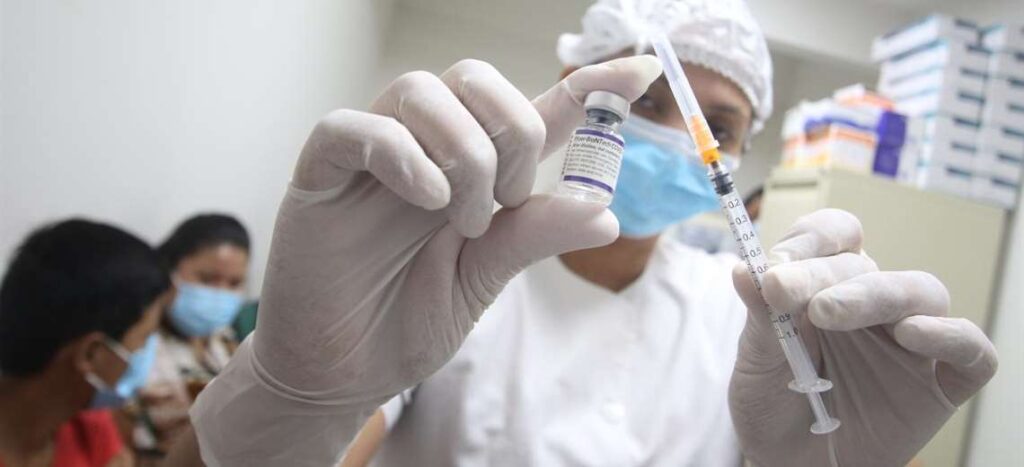In Brazil, children who most need day care still have little access to the service. This is what a study published by the Maria Cecilia Souto Vidigal Foundation (FMCSV) shows. Among the poorest families, for example, only 24.4% of children up to 3 years of age attend daycare centers in the country, that is, one in four. 
The study is based on the so-called Daycare Needs Index (INC), developed with the aim of better guiding public policies and mapping the care needs of children in daycare centers in the country. According to the indicator, the percentage of children who need to be cared for grows year by year. In 2018, 40.6% of children up to 3 years old were in vulnerable groups that most needed the vacancies. In 2019, the percentage rose to 42.4%. For 2020, the projection is that the index will reach 42.6%.
This means that, of the 11.8 million Brazilian children up to 3 years of age, almost 5 million need day care. Children in poverty are part of the group, which, until 2019, represented 17.3% of the total number of children in Brazil; those from single-parent families, raised only by the mother, father or other guardian (3.5%); and children whose main caregivers need to have daycare centers in order to work (21.7%).
Even though they are among those most in need of care, 75.6% of the poorest children are outside daycare centers. Among those from single-parent families, 55% are not enrolled and, in the group of economically active mothers or caregivers, 18.3% are out of school.
Daycare Need Index
The information is part of the study 2018-2020 Daycare Needs Index and Frequency Estimates: Inputs for Focusing Public Policies, carried out by the foundation. The calculations are based on the most recent data from the Brazilian Institute of Geography and Statistics (IBGE), up to 2019. The index for each of the Brazilian municipalities is available for consultation at Early Childhood First Platform.
“We believe that, by bringing light to the data, we are able to bring more efficient ways to tackle inequality and break the cycle of poverty”, says FMCSV CEO Mariana Luz. She emphasizes that early childhood, which lasts up to 6 years of age, is a stage of great power and development, which can impact the entire life of the human being.
Therefore, according to Mariana, it is essential that especially vulnerable children have access to quality day care. “Having a formal environment of basic education of stimuli, interactions, learning, reading, having a curriculum prepared so that it has games anchored with the pedagogical intention that promotes the entire learning process, is to speak, in fact, of giving opportunity this child to get out of the cycle of poverty”, he says.
Labor market
Day care also means having a safe place to leave children, which allows mothers, fathers and guardians to work. “The daycare center’s job is to act as a partner so that we can have autonomy to work, to be able to carry out our activities”, says the director of the Early Childhood Education Center (Cepi) Rosa do Cerrado, in Taguatinga, in the Federal District. , Kedma Silva Nunes. She is the single mother of Rebeca, 15 years old, Raquel, 14 years old, Ruth, 9 years old and Rafaela, 2 years old. All went through the daycare and Rafaela is still enrolled.
The director is part of the group of families that need the day care center to be able to work. “I couldn’t afford my daughter’s routine outside of work, I would have to stop working or stay at home with my daughter,” she says.
At the school where she works, Kedma sees other mothers who are in the same situation. “The day care center has this role of strengthening the bond for vulnerable families, because the day care center comes with this role of empowering women. If I have a place to leave my son, I can go out to work, provide for a home and not depend on [de outras pessoas]. Sometimes he worked with families where only the man worked. With the woman having a place to leave the child, she is able to go out and have a job”.
Impact of the pandemic
The pandemic has had an impact on education, especially in early childhood education, a stage in which remote education is often not possible. Many families ended up canceling the children’s enrollment in private day care.
The 2021 School Census, released this year, showed that more than 650,000 children dropped out of school between 2019 and 2021. In this period, the number of children enrolled in day care went from 3.7 million in 2019 to 3.4 million in 2021.
Public day care centers in Brazil are mainly managed by municipalities. According to the president of the National Union of Municipal Education Directors (Undime), Luiz Miguel Garcia, managers will have to deal with a repressed demand in the pandemic.
“We have a very strong increase in demand. These are the children who were at home with their families during the pandemic and are returning, there are the public from the private network, students who were in the private network and who, due to the entire economic crisis, are being forced to return to the public network. . This is generating quite a big increase. And there are those who ended up staying out and who need to be the object of active search, especially those from very vulnerable families,” she says.
missing vacancies
In Brazil, day care is not a mandatory step. Education is compulsory only from the age of 4. Before that, it is up to the families to decide on enrollment. The state must, however, ensure that there are vacancies for all those who wish to do so. What happens, in practice, is the lack of vacancies and long lines to guarantee a place in public day care centers.
Brazil must, by law, serve at least 50% of children up to 3 years of age in day care centers by 2024. The goal is foreseen in the National Education Plan (PNE), Law 13.005/2014. According to the latest available data, from 2019, 37% of children in this age group were enrolled.
According to Garcia, in order for the PNE goal to be met, national engagement will be necessary, so that “the policy of building school units is resumed and that there is an incentive for states and municipalities to be able, in partnership, to organize and generate these new vacancies”.
In order for the most vulnerable population to be included, according to Garcia, it is essential to ensure that the day care center is located close to the family’s residence. “This is only possible if we guarantee the installation of early childhood education units in different parts of the cities, meeting the demand and avoiding displacement or deprivation of the child’s right to day care. An important issue is to reactivate the program of construction of school units with greater intensity, covering the regions as a priority”.
The last PNE monitoring reportreleased by the National Institute of Educational Studies and Research Anísio Teixeira (Inep) shows that, in order to meet the goal, it is still necessary to include about 1.5 million children in day care centers and that a large part of them come “from low-income families , where the largest contingent of unattended children is concentrated”.

















